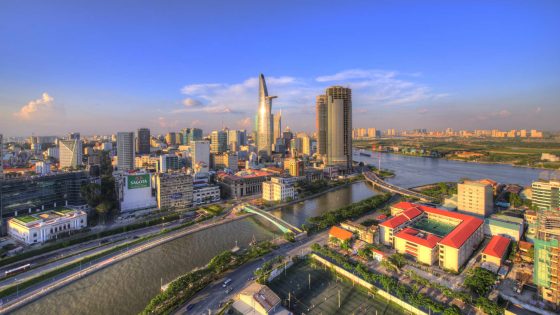Growing labor market participation, a pickup in consumer demand and economic growth are among the reasons why emerging markets have been in the spotlight this year. Emerging markets on the MSCI list include Brazil, China, Greece, India, Indonesia, South Korea, Malaysia, Mexico, the Philippines, Qatar and Thailand. One fund manager, however, is looking outside that list, at an “up and coming emerging market and the next dragon in Asia” â Vietnam. “It’s in a sweet spot in terms of economic growth, urbanization, labor market participation and having the right government policy. The market is also very cheap,” Shasha Li Mafli said. The senior fund manager at Eric Sturdza Investments manages the $83 million Strategic Vietnam Prosperity Fund which seeks long-term capital growth through investments in Vietnamese structural growth themes. Speaking to CNBC Pro last month, Mafli â who specializes in investing in Asian stocks â drew parallels between Vietnam’s current economy and China’s 15 years ago. Similarities include the strength of their manufacturing sectors, a growing middle-income class, young population, stage of infrastructure development and strength in foreign direct investment flows, she said. “Vietnam has been quite successful in the last 10/15 years and is now positioned for significant growth from current levels. Its GDP per capita is about $4,000 today is likely to reach $10,000 – where China is today – over the next few years,” Mafli said. Acknowledging that both countries differ in size and scale, the fund manager said the similarity in their economic structures provides insight into Vietnam’s potential trajectory. The Southeast Asian country’s economy grew by 6.42% in the first six months of the year from 3.84% the year before, while FDI inflows surged 13.1% to $15.19 billion, data from its General Statistics Office revealed . Forecasts from the International Monetary Fund put the nation’s full-year 2024 growth rate at 6.1% . In spite of its strong growth, Vietnam is still not part of the MSCI Emerging Markets Index. Mafli expects this to change in the next year or two â with the country being added first to the FTSE Emerging Asia Pacific Index and FTSE Emerging Markets Index next year, and the MSCI Emerging Markets Index soon after. A ‘big theme’ Mafli is betting on “high growth sectors” and stocks “doing well in underperforming sectors.” One theme she watching is consumption, given the surge in Vietnam’s middle- to higher-income population, she said. “This is the big theme I play in Vietnam because it will benefit so many sectors like retail and continue to drive Vietnam’s growth in the next 5/10 years,” Mafli added. Stocks she’s playing in the theme include electronics retailer Mobile World Investment, which she describes as a “very successful business.” “This is one of the best companies in terms of growth and management quality,” she said. Shares in Mobile World are up nearly 55% year-to-date. Of 12 analysts covering the stock, 11 give it a buy or overweight rating and one has a hold call, according to FactSet data. The stock’s average price target of 74,473.80 Vietnamese dong ($3.01) gives it upside potential of 12.3%. Infrastructure play Another area on Mafli’s radar is infrastructure, given developments in sectors like logistics, energy and utilities. She noted that energy infrastructure â which includes projects in oil and gas or wind installationsâ have been weak in the last decade, and will likely be ramped up. She said she’s playing them theme with PetroVietnam Technical following its acceleration in oil and gas projects and progress in wind installation and green energy. Shares in the stock are up nearly 9.5% year-to-date. All six analysts covering PetroVietnam have an overweight or buy rating at an average price target of 49,411.20 Vietnamese dong, according to FactSet data. This gives the stock 18.5% upside potential. ‘Very undervalued’ sector Mafli also likes real estate, a sector she considers “very undervalued especially over the last two years.” Vietnam’s real estate market was in a crisis in 2023 , following declines in supply and liquidity. But it has been showing signs of recovery since late last year, with government support and the reopening of projects. Vietnam’s property market troubles differ from China’s in that the nation is still in the early stages of growth and is not facing issues of oversupply, Mafli explained. She expects the country’s rapid urbanization to increase demand for residential, industrial and commercial properties in the next decade.
Source Agencies



